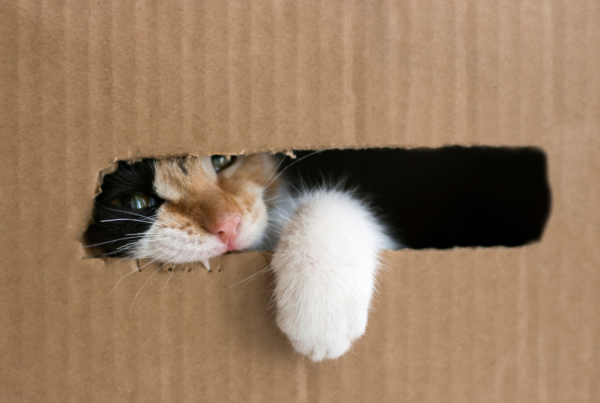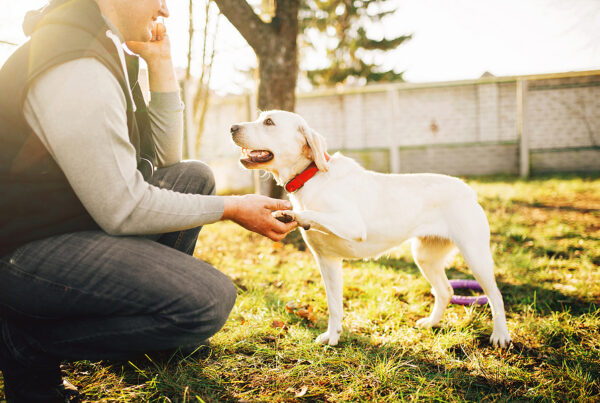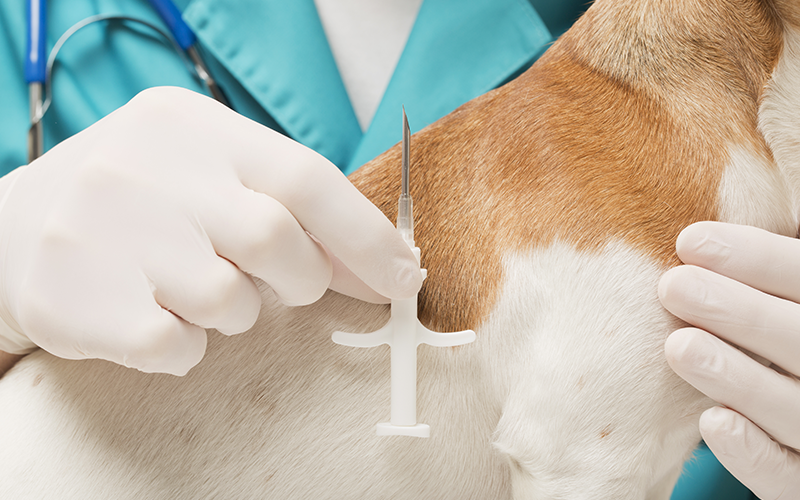It’s National Microchipping Month… and what better time to talk about our time at the microchip Trade Association meeting we attended last month! Read on to find out what we talked about during the meeting, the latest news on microchipping and what we can all do to protect our pets and improve the system…
Microchipping - a quick overview
Microchipping has been a legal requirement ever since it was introduced on 6 April 2016 - they provide the best way of reuniting with our pets if they ever go missing, as they are the most reliable method of identification. The microchip itself holds a unique 15-digit number and when scanned, it can be displayed. This number can be searched using a microchip lookup tool which then shows which database that chip is registered to. The owner will have their details registered to that database so they can be contacted to reunite with their pet… but only if their details are kept up to date!
It’s been 3 years since the compulsory Microchipping of Dogs Regulations came into force and last month, the Microchip Trade Association (MTA) held a meeting to talk about how the current microchipping legislation is working and what can be improved upon.
Barry Webb from Battersea Dogs & Cats Home
First up to talk was Barry Webb from Battersea Dogs & Cats Home. Barry talked about the stats from a survey regarding the status of stray dogs, undertaken by Battersea themselves, involving 50 local authorities from 2016 to 2018.
The first survey in 2016 found that shockingly, only 20% of microchipped dogs had accurate contact details recorded on their registered database, meaning that these dogs could easily be reunited. This also demonstrated that many owners are not aware of the benefits of microchipping their dog and keeping their database contact details up to date.
In 2017, they found that there was a slight improvement, but still only 31% of chipped dogs had accurate details recorded on the microchipping database.
The survey in 2018 found that there was no improvement, with just 29% of stray dogs being microchipped with up-to-date details, showing that there is a desperate need for something to be done about microchip awareness and keeping details up to date.
Battersea found that keepers not updating their contact details account for a third of all inaccuracies on databases.
Responses to these findings included:
- Potential free microchipping from welfare sector
- Vets should offer to register and update details
- Vets should offer to register and update details
- DEFRA should promote good practice

Peter Scott Veterinary Surgeon
Peter Scott talked about quality and placement – he highlighted the need for a quality microchip to be inserted in the correct place by the rightly qualified person. He also talked about scanning for a microchip thoroughly, as he’d previously found 4 chips in a rescue dog as people had not checked for the chip properly!
Debbie Matthews from Vets Get Scanning
Debbie highlighted the shocking crime of pet theft – where the number of dogs stolen increased from 6.8% in 2016-2017. Current figures show that there are 5 reported dog thefts every day in the UK, however, these figures are inaccurate as only one crime is accounted for each theft no matter if multiple dogs were stolen! Debbie and many others are campaigning to amend animal welfare law to make pet theft a specific offence.
You can sign the Pet Theft Reform here.
Mark Callis from London Borough of Wandsworth
Mark underlined the problems with microchipping and how they could be resolved.
Issues raised included:
- Some implanters not keeping records
- Non-DEFRA approved databases
- Dogs imported from foreign databases not re-registering with UK compliant databases
Mark suggested a country-wide approach to enforce the law of microchipping and updating details.
Jacqui & Madison from Cats Protection
Among the 11.1 million cats in the UK, 32% are not chipped. As well as this, cat theft has gone up by a whopping 114%. Microchipping can help significantly improve these numbers and help reunite lost, stolen or injured cats back to their families.
Jacquie and Madison also highlighted that 25% of councils are not scanning cats on the roadside in Scotland and Wales, which is damaging and heart-breaking for the families that spend time trying to find their lost cats.
Even more surprisingly, in 2018, 62% of cats taken to cats protection UK adoption centres were not microchipped an almost 20% were strays – many of these cats do not get reunited to with their families due to not being microchipped.
Here’s their suggestions on how to get more cats chipped:
- Education and awareness of microchipping
- Regional snip and chip schemes from Cats Protection
- Review of microchipping laws and regulations
Compulsory microchipping in cats already exists in France, Belgium and parts of Australia… so let’s make it the law in the UK!

Daniella from British Veterinary Association
Daniella also talked about the challenges faced with lost and stolen pets and the need to scan and cross check other databases.
Challenges include:
- Foreign microchips not being re-registered with UK compliant databases
- Owner records not being kept up to date (contact details held on their pet’s registered database)
- Lack of enforcement of non-DEFRA approved databases
Phil and Debbie from DEFRA
Phil and Debbie had great news regarding equine microchipping – from October 2020 all horses, ponies and donkeys must be identified by a microchip. A central equine database will hold all details for horses, ponies and donkeys in the UK.
They also raised some issues about the current microchipping regulations:
- Concern over non-compliant databases (databases that are not listed on GOV.UK
- Cost of updating chip records (some databases charge pet owners to update their details)
- Why not make microchipping of cats compulsory?

Overall conclusions
A common theme from all speakers at the MTA meeting was that owners are not updating their contact details on their pet’s microchip database records… but why is this?
The main reasons for owners not updating their details is that either they are not aware they need to, or that they are deterred from doing so as most databases charge a fee of around £15.
What can we all do going forward?
It’s clear that there needs to be more awareness of microchipping and the benefits it can have for our pets.
Our aim as a DEFRA-approved database ourselves is to make it easier to protect our pets and reunite them if they ever stray. We’ve taken the first steps to really make an improvement to the current microchipping system and databases by providing:
- The lowest cost DEFRA-approved pet registration (£2.99) – you can also update your contact details for free at any time, increasing the chances of reuniting with your pet if they ever go missing.
- The world’s lowest cost microchip scanner (£9.99) – now anyone can scan and identify pets, whether you’re a pet owner, vet, dog walker or anyone that wants to help.
Are your chip details up to date?
Microchipping your dog and keeping your details up to date is now a legal requirement for all dog owners in the UK. If you’d like to update your contact details on your pet’s microchip record, you can do so free of charge on our UK government approved database.
Please visit the PetScanner website to update your details or register your pet.
To find us listed as a DEFRA-approved pet database, visit GOV.UK here.
If you have any questions you would like to ask us, please contact us here.
More Interesting Posts






